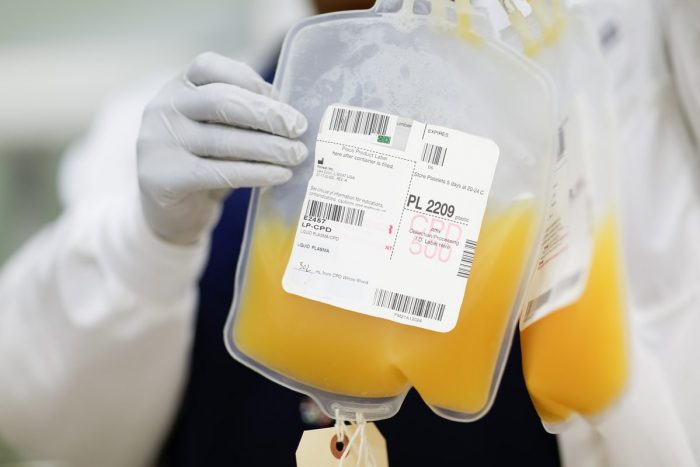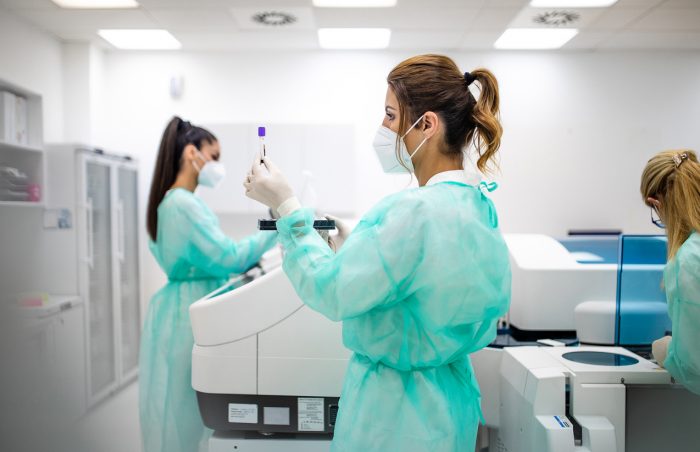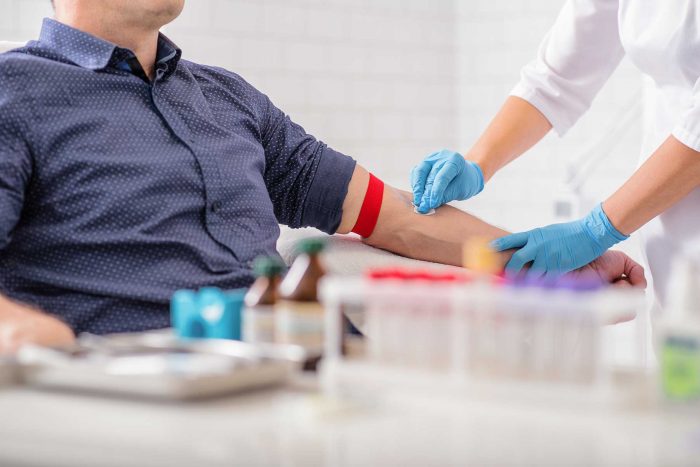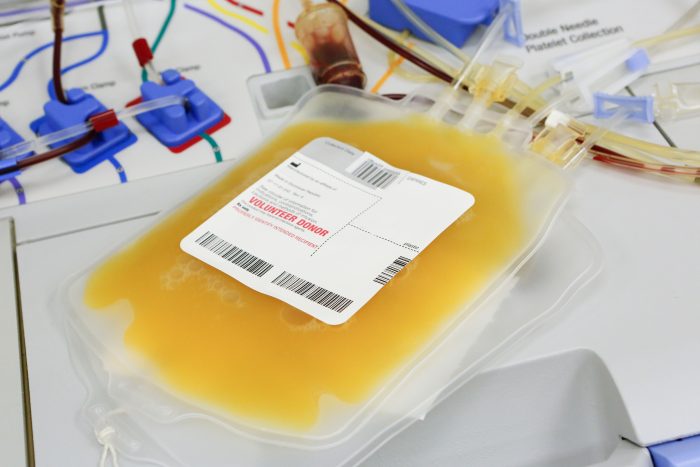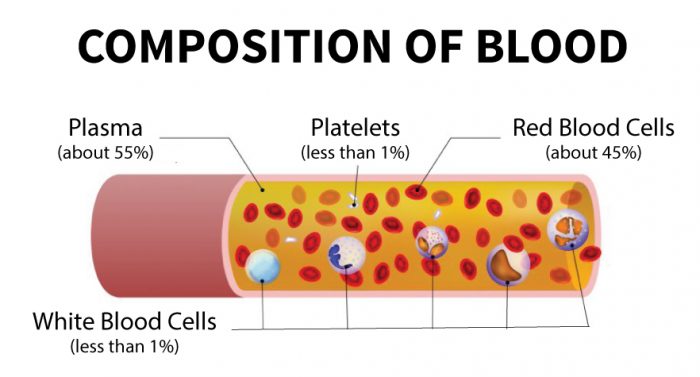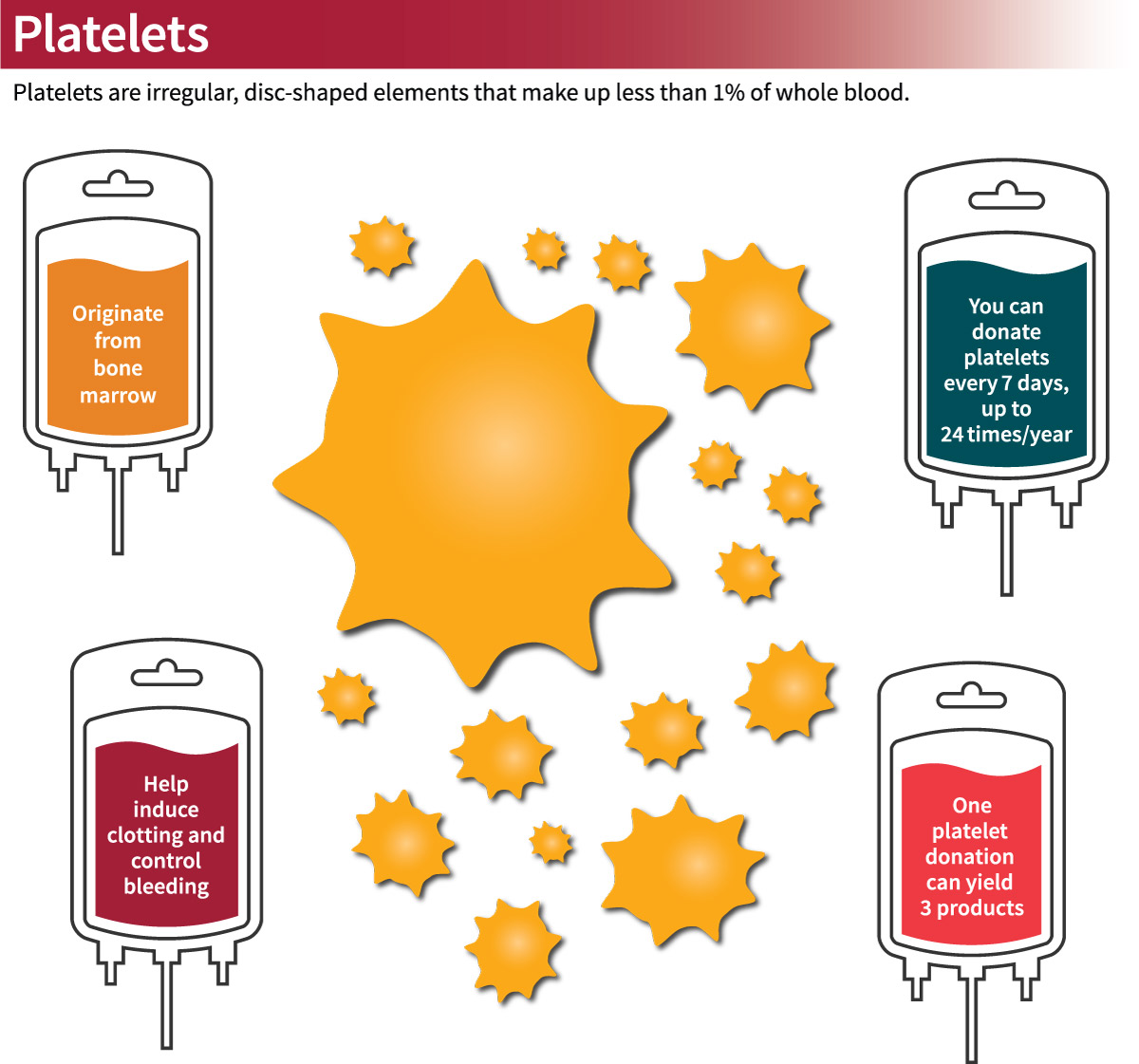
Platelets
What are platelets used for? Platelets, which come from bone marrow, help to induce clotting and control bleeding. Patients who have been treated for leukemia with chemotherapy, for example, will often need to be transfused platelets.
What is the process of donating platelets? During a platelet donation, we will collect one, two, or three units of platelets. One of our medical technicians will recommend the number of units based on your weight, hemoglobin level and platelet count that day.
How long does donating platelets take? Times for donating platelets can vary, but may take up to two hours.
How often can I donate platelets? You can donate platelets every 7 days. However, there is a limit to only 24 platelet donations each year.
Is there any special preparation required to donate platelets? Yes, there is. Please remember to increase intake of fluids, calcium, and iron at least two days before your appointment — this will help prevent donation reactions.
Donors must be aspirin-free for 48 hours to donate platelets. This is because aspirin reduces the potency and performance of your platelets. The more time between taking aspirin and donating platelets, the better for the recipient.
Where can I donate platelets? Platelet donations are accepted at all three of our donor centers.
Are platelets type-specific? Generally speaking, blood type matching between donors and patient does not matter when transfusing platelets. Certain blood types, however, may be better suited for platelet donation: A+, A-, B+ and B-.
How do I know if I am eligible to donate platelets? To find out if you are eligible to donate platelets, make an appointment to donate whole blood, and ask your historian about platelets while you are there.
How do I make an appointment to donate platelets? To make an appointment to donate platelets, give us a call at 650-723-7831.

